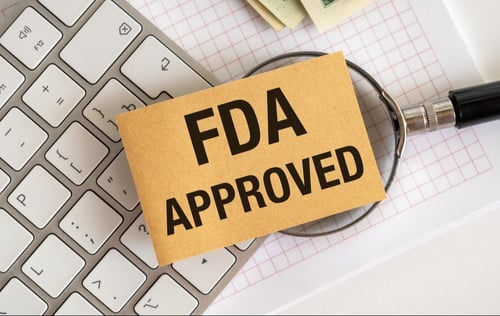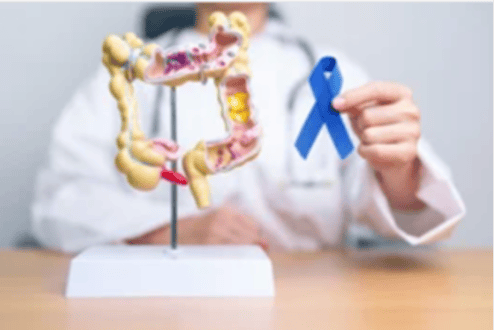Treating Cancer with Immunotherapy
Using to treat cancer
Immunotherapies are cancer treatments that help the body’s immune system detect and attack cancer cells. Several types of immunotherapies are being used to treat cancer. These include:
- immune checkpoint inhibitors
- monoclonal antibodies
- non-specific immunotherapies
- cancer vaccines
- Chimeric Antigen Receptor T-cell (CAR-T) therapy
How is selected?
Doctors consider several pieces of information to decide which , if any, is the best therapy for a patient. Selection may depend on the following:
- Cancer type: Various immunotherapies are approved for use in different types of cancer. You can learn more about by cancer type in our Cancer Treatment by Cancer Type section.
- Cancer , subtype and grade: Some immunotherapies are approved only for use in certain stages of cancer, grades or types of cancer.
- Location or site of cancer that has spread: Certain immunotherapies may work better in different organs. For example, the blood-brain barrier protects your brain by filtering out drugs. If cancer has spread to your brain, your oncologist may treat you with a therapy that is able to cross the blood-brain barrier.
- Number of prior treatments and response: Some immunotherapies are used to treat progression or recurrence after a specified number or type of prior treatments have already been used.
- Results of tumor testing: Some immunotherapies work best on cancers that express certain biomarkers. Biomarkers can be proteins, genes changes, and other cell products. You can learn more about testing for selecting immunotherapies in our Common Biomarkers sections.
- Results of genetic testing for an inherited mutation: Some immunotherapies are effective for treating cancers in people with certain inherited mutations. Immune checkpoint inhibitors, for example, may be effective for treating cancers in people with mutations associated with .
Each drug has different indications. Like all cancer treatments, immunotherapies can have side effects.
Immune checkpoint inhibitors
Immune checkpoint inhibitors are one of the most common cancer immunotherapies.
Our immune system uses a "checkpoint" system to tell the difference between normal cells and abnormal cells, such as cancer. This allows our immune system to fight cancer and spare normal cells. Like a lock and key, when proteins on the immune cells bind to proteins on normal cells, it deactivates the immune cells and prevents them from attacking. Cancer cells can sometimes produce their own checkpoint proteins, which can switch the immune cells off.
Immune checkpoint inhibitors are drugs that prevent cancer cells from switching off immune cells. This allows the immune system to find, unmask and destroy cancer cells.
Immune checkpoint inhibitors are approved to treat a number of different types of cancers. Examples of immune checkpoint inhibitors include:
- Imfinzi (durvalumab)
- Jemperli (dostarlimab)
- Keytruda (pembrolizumab)
- Opdivo (nivolumab)
- Tecentriq (atezolizumab)
- Yervoy (ipilumumab)
Immune checkpoint inhibitors may work well on cancers that have a defect in genes responsible for a type of damage known as mismatch repair. Tumors with mutations in mismatch repair genes typically have two biomarkers that doctors can use to find the cancers that may respond well to immunotherapy:
- Mismatch repair deficient cancers (also called or )
- (also called or MSI-H).
Although many different cancers can have these biomarkers, they are often found in cancers of people with .
Additional biomarkers may be used to identify cancers most likely to respond to immune checkpoint inhibitors. These include:
- Tumor mutational burden-High (TMB-High or TMB-H)
- positive (often reported as a percentage score)
|
Drug |
Cancer Type |
|
Use |
|
|
Imfinzi (durvalumab) |
Endometrial cancer |
Recurrent or advanced endometrial cancer |
In combination with chemotherapy, followed by Imfinzi alone to treat primary advanced or recurrent endometrial cancer |
( or ) |
|
Jemperli (dostarlimab) |
Rectal cancer |
2 or 3 rectal cancer |
Before surgery () to shrink tumor. The use of this drug in colorectal cancer is not approved yet. It is included in the NCCN expert guidelines as an off-label treatment option based on very promising research results |
High (MSI-H) or ( or ) |
|
Jemperli (dostarlimab) |
Colorectal cancer |
or unresectable colorectal cancer |
Treatment for people who's cancer progressed after chemotherapy |
High (MSI-H) or ( or ) |
|
Jemperli (dostarlimab) |
Endometrial cancer |
Recurrent or advanced endometrial cancer |
In combination with chemotherapy, followed by Jemperli alone to treat primary advanced or recurrent endometrial cancer |
No required |
|
Jemperli (dostarlimab) |
Endometrial cancer |
Recurrent or advanced endometrial cancer |
For treatment of recurrent or advanced endometrial cancer that is mismatch repair deficient () that has progressed on or following a prior platinum-containing regimen. |
( or ) |
|
Keytruda (pembrolizumab) |
Breast cancer |
Early TNBC at high risk for recurrence |
Before surgery Keytruda is used along with chemotherapy as therapy. Following surgery, Keytruda is continued alone |
Triple-negative (, ) |
|
Keytruda (pembrolizumab) |
Breast cancer |
or locally-recurrent unresectable tumors |
As treatment in combination with chemotherapy |
Triple-negative ( and ) and PD-L1-positive |
|
Keytruda (pembrolizumab) |
Colorectal cancer |
or unresectable colorectal cancer |
For treatment of or unresectable colorectal cancer |
High (MSI-H) or ( or ) |
|
Keytruda (pembrolizumab) |
Colorectal cancer |
or unresectable colorectal cancer |
For cancer that has progressed following treatment with a fluoropyrimidine, oxaliplatin, and irinoteca |
High (MSI-H) or ( or ) |
|
Keytruda (pembrolizumab) |
Endometrial cancer |
Advanced or endometrial cancer |
For advanced or recurrent endometrial cancer that came back or got worse after previous treatment and for which there are no other treatment options |
High (MSI-H) or ( or ) |
|
Keytruda (pembrolizumab) |
Endometrial cancer |
Advanced or endometrial cancer |
Combined with Lenvima (lenvatinib) for patients whose cancer has progressed after treatment and who are not candidates for surgery or radiation |
Tumors that are not MSI-H or (or ) - they may be referred to as MSI-Low, MSS, pMMR or MMR-P). |
|
Keytruda (pembrolizumab) |
Any solid tumor |
or unresectable |
For treatment of that have progressed after treatment and for which there are no other treatment options |
High (MSI-H) or ( or ) |
|
Keytruda (pembrolizumab) |
Any solid tumor |
or unresectable |
For treatment of tumors that have progressed after treatment and for which there are no other treatment options |
Tumor Mutational Burden-High (TMB-H) |
|
Opdivo (nivolumab) |
Colorectal cancer |
colorectal cancer |
As a single agent or in combination with Yervoy (ipilimumab) for cancer that has progressed following treatment with a fluoropyrimidine, oxaliplatin, and irinotecan |
High (MSI-H) or ( or ) |
|
Opdivo (nivolumab) |
Melanoma |
or unresectable melanoma |
As a single agent or combined with ipilimumab |
No required |
|
Opdivo (nivolumab) |
Melanoma |
or lymph node positive melanoma |
For the treatment of people with following complete removal of the cancer |
No required |
|
Tecentriq (atezolizumab) |
Melanoma |
or unresectable melanoma |
Combined with Cotellic and Zelboraf in people with melanoma that has the BRAF gene mutation, when the cancer can’t be removed by surgery or has spread to other parts of the body |
BRAF V600E or V600K tumor mutation |
|
Tecentriq (atezolizumab) |
Melanoma |
or unresectable melanoma |
Combined with Cotellic and Zelboraf in people with melanoma that has the BRAF gene mutation, when the cancer can’t be removed by surgery or has spread to other parts of the body |
BRAF V600E or V600K tumor mutation |
|
Yervoy (ipilumumab) |
Colorectal cancer |
colorectal cancer |
Combined with Opdivo (nivolumab) for cancer that has progressed following treatment with a fluoropyrimidine, oxaliplatin, and irinotecan |
High (MSI-H) or ( or ) |
|
Yervoy (ipilumumab) |
Melanoma |
or unresectable melanoma |
For the treatment of people with melanoma |
No required |
|
Yervoy (ipilumumab) |
Melanoma |
Lymph node positive melanoma |
treatment of people with cutaneous melanoma with spread to regional of more than 1 mm who have undergone complete removal of the cancer and |
No required |
Monoclonal antibodies and antibody-drug conjugates
Some immunotherapies are also considered targeted therapies because they use antibodies to target abnormal proteins or receptors that are found in high quantities in cancer cells or the surrounding tissue.
Avastin (bevacizumab) is an example of an antibody that kills cancer cells by blocking VEGF, a protein that tumors use to make new blood supply. Herceptin (trastuzumab), and similar anti-Her2 therapies, are monoclonal antibodies that work against the protein, which is found in large amounts on some types of breast cancer cells. Typically, monoclonal antibody drugs have a chemical name that ends with the letters "mab."
Sometimes monoclonal antibodies are attached to additional cancer-fighting drugs, such as chemotherapy. The monoclonal antibody helps deliver the chemotherapy to the targeted cancer cells. These combination antibody-chemotherapy medications are also called "antibody-drug conjugates" (ADC). You can learn more about ADCs in our section on chemotherapy.
|
Drug |
Cancer Type |
|
Use |
|
Type of Agent |
|
Avastin (bevacizumab) |
Colorectal cancer |
|
Combined with intravenous 5-fluorouracil-based chemotherapy for first- or second-line treatment |
No required |
Monoclonal antibody |
|
Avastin (bevacizumab) |
Colorectal cancer |
|
In combination with chemotherapy for second-line treatment in patients who have progressed on a Avastin-containing regimen |
No required |
Monoclonal antibody |
|
Avastin (bevacizumab) |
Ovarian, , or primary peritoneal cancer |
2-4 |
Combined with Lynparza () for , for platinum-sensitive cancer |
() testing |
Monoclonal antibody |
|
Avastin (bevacizumab) |
Ovarian, , or primary peritoneal cancer |
3-4 |
Combined with chemotherapy, followed by Avastin as a single agent following initial surgical resection |
No required |
Monoclonal antibody |
|
Avastin (bevacizumab) |
Ovarian, , or primary peritoneal cancer |
Recurrent platinum-resistant disease |
Combined with chemotherapy for platinum-resistant recurrent disease who received no more than 2 prior chemotherapy regimens |
No required |
Monoclonal antibody |
|
Avastin (bevacizumab) |
Ovarian, , or primary peritoneal cancer |
Recurrent platinum-sensitive disease |
Combined with chemotherapy, followed by Avastin as a single agent, for platinum-sensitive recurrent diesase |
No required |
Monoclonal antibody |
|
Cyramza (ramucirumab) |
Colorectal cancer |
|
Combined with FOLFIRI chemotherapy, for treatment after disease progression on, or after prior therapy with bevacizumab, oxaliplatin, and a fluoropyrimidine |
No required |
Monoclonal antibody |
|
Datroway (datopotamab deruxtecan-dlnk) |
Breast cancer |
( 4) or unresectable |
Treatment for cancers that have progressed after hormone therapy and chemotherapy |
Hormone receptor position (), |
Antibody-drug conjugate |
|
Elahere (mirvetuximab soravtansine-gynx) |
Ovarian, , or primary peritoneal cancer |
3 or 4 |
As second-line or later treatment of platinum-resistant or platinum-sensitive recurrent ovarian cancer |
Positive for FRα (folate receptor alpha) |
Antibody-drug conjugate |
|
Enhertu (fam-trastuzumab-deruxtecan-nxki) |
Breast cancer |
|
Treatment for people who have:
|
overexpression () |
Antibody-drug conjugate |
|
Enhertu (fam-trastuzumab-deruxtecan-nxki) |
Breast cancer |
|
Treatment for people with tumors that are HER2-low who:
|
HER2-low |
Antibody-drug conjugate |
|
Enhertu (fam-trastuzumab-deruxtecan-nxki) |
|
( 4) or unresectable |
For adult patients with advanced who have received prior treatment and have no alternative treatment options |
overexpression () |
Antibody-drug conjugate |
|
Kadcyla (trastuzumab emtansine) |
Breast cancer |
|
For treatment in people whose cancer got worse after receiving Herceptin and chemotherapy in the following settings:
|
overexpression () |
Antibody-drug conjugate |
|
Kadcyla (trastuzumab emtansine) |
Breast cancer |
Early ( 2-3) |
As therapy for people who have residual invasive disease after taxane and Herceptin |
overexpression () |
Antibody-drug conjugate |
|
Perjeta (pertuzumab) |
Breast cancer |
Locally advanced, inflammatory or early |
Combined with Herceptin (trastuzumab) and docetaxel as treatment before surgery () |
overexpression () |
Monoclonal antibody |
|
Phesgo (pertuzumab, trastuzumab combined injection) |
Breast cancer |
Early |
|
overexpression () |
Monoclonal antibody |
|
Trodelvy (sacituzumab govitecan-hziy) |
Breast cancer |
|
For breast cancer that progressed, recurred or did not respond to at least two previous lines of treatment |
Triple-negative (, ) |
Antibody-drug conjugate |
|
Trodelvy (sacituzumab govitecan-hziy) |
Breast cancer |
|
For breast cancer breast after endocrine-based therapy and at least 2 additional systemic therapies in the setting |
Hormone receptor-positive (), |
Antibody-drug conjugate |
|
Trodelvy (sacituzumab govitecan-hziy) |
Breast cancer |
( 4) |
For breast cancer breast after endocrine-based therapy and at least 2 additional systemic therapies in the setting |
Hormone receptor-positive (), |
Antibody-drug conjugate |
|
Vectibix (panitumumab) |
Colorectal cancer |
|
Combined with FOLFOX for treatment |
Negative for KRAS and NRAS mutations |
Monoclonal antibody |
|
Vectibix (panitumumab) |
Colorectal cancer |
|
As a single therapy following disease progression after prior treatment with fluoropyrimidine, oxaliplatin, and irinotecan-containing chemotherapy |
Negative for KRAS and NRAS mutations |
Monoclonal antibody |
Non-specific immunotherapies
Non-specific immunotherapies broadly boost the immune system. Even though they do not target cancer cells specifically, they can still create a better overall immune response against cancer cells.
Examples of non-specific immunotherapies are interleukins that stimulate immune system cells to grow and divide more quickly, and interferons that boost the ability of immune cells to attack cancer cells. Both drugs may be used to treat melanoma.
|
Drug |
Cancer Type |
|
Use |
|
|
Proleukin® (aldesleukin) |
Melanoma |
For local treatment of cutaneous, subcutaneous, and nodal lesions in patients with melanoma recurrent after initial surgery |
No required |
|
|
Intron A |
Melanoma |
Early |
As therapy within 56 days after surgery in adults with melanoma who are free of disease but at high risk for recurrence |
No required |
|
Sylatron |
Melanoma |
Early |
As treatment within 84 days after surgery for melanoma with spread to the |
No required |
Cancer vaccines
Cancer treatment vaccines are molecules that are introduced into the body to start an immune response against cancer cells; they are different from vaccines that work as prevention against viruses such as Human Papilloma Virus (HPV). Instead of preventing disease, cancer treatment vaccines encourage the immune system to attack an existing disease. These vaccines are sometimes made from a patient’s own tumor cells. One example is Provenge (sipuleucel-T), a cancer treatment vaccine that is used to treat some men with cancer.
Some cancer vaccines are made by altering viruses to attack cancer cells. Imlygic (talimogene laherparepvec or T-VEC therapy) is a genetically-altered virus that is used to treat advanced melanoma.
Other cancer treatment vaccines are being tested in clinical trials to treat a range of cancers.
|
Drug |
Cancer Type |
|
Use |
|
Type of Agent |
|
Imlygic (T-VEC or talimogene laherparepvec) |
Melanoma |
Unresectable recurrent melanoma |
For local treatment of cutaneous, subcutaneous, and nodal lesions in patients with melanoma recurrent after initial surgery |
No required |
Vaccine |
|
Provenge (sipuleucel-T) |
cancer |
castration resistant cancer (mCRPC) |
For the treatment of asymptomatic or minimally symptomatic castrate resistant cancer |
No required |
Vaccine |
Chimeric Antigen Receptor T-cell (CAR-T) therapy
CAR-T therapy is a type of personalized created from a patient's own tumor. With CAR-T therapy, a patient's own immune cells (known as T cells or T lymphocytes) are removed from the blood in a process called apheresis. The T cells are modified in a lab, by attaching a substance known as a chimeric antigen receptor. This attachment can help the T cells locate and kill cancer cells. These enhanced T cells are known as CAR-T cells. Before the CAR-T cells are injected back into the body, patients undergo a round of chemotherapy.
CAR-T therapy is currently only approved for treating blood cancers like leukemias, and multiple myeloma. Research studies are looking at using CAR-T to treat other types of cancer.
Side effects of immunotherapy
Like any medication, immunotherapies may cause side effects. Although some effects are more common with certain medications, each person's experience may be different. Side effects may vary depending on your general health, the type of agent and dose you are on, other medications you take, the site of your cancer and other factors.
Not all people experience side effects, but those who do may have options for minimizing or eliminating some of them. It's important to talk with your doctor about possible treatment for side effects and how they can be managed. Consider participating in a clinical trial that is looking at new ways to manage treatment side effects.
Some of these effects may improve with medication or other medical interventions. It's important that you report any symptoms or changes in your health to your doctor. You may also report any suspected side effects directly to the online or by calling 1-800-FDA-1088.
Any therapy can cause an allergic reaction in someone who is sensitive to the medication. Allergic reactions may range from mild to severe. Rarely these reactions can be fatal. Your oncologist may prescribe medication to decrease your risk for severe allergic reactions caused by .
Anemia, bleeding and low white blood cell counts
Some immunotherapies, especially monoclonal antibodies, damage bone marrow, where blood cells are made. This can result in too few red blood cells (anemia), too few platelets (thrombocytopenia) and a low white blood cell count (neutropenia).These bone marrow effects can lead to symptoms like fatigue, rapid heart rate, bleeding and increased risk for infection. Most of the time, these changes are mild. Your oncologist may test your blood, to make sure that your blood counts do not drop too low, which could delay treatment.
Birth defects
Many immunotherapies can cause birth defects. Women are cautioned not to become pregnant while on immunotherapies. It's important to speak with your doctor about your plans for pregnancy before starting treatment.
Fatigue
Fatigue may be caused by cancer or treatments, including immunotherapies. You should report fatigue to you doctors so they can check and treat you for underlying causes, including depression, sleep disturbances and medication side effects. You may be able to improve your energy level with these suggestions:
- making sure that your diet is balanced and provides you with adequate nutrition. Ask your doctor for a referral to a nutritionist if you need help figuring out your nutritional needs.
- making sure that you get adequate sleep.
- trying to stay physically active, which can help improve your energy level.
Certain immunotherapies—especially anti-Her2 therapies—can cause heart damage. Your oncologist may run tests to make sure that your heart function is normal before, during and after treatment. Some drugs may help protect the heart from damage caused by these agents. Heart damage caused by treatment can also be minimized by lowering the dose, changing how it is given or switching to different drug.
Immune-mediated (also known as auto-immune) side effects happen when the immune system attacks normal cells. These side effects are most likely with checkpoint inhibitors and may be severe or even life-threatening. Although these effects may be reversible, some can be severe. Symptoms depend on the organs that are attacked. Some of the more common organs that may be affected include:
- colon
- kidneys
- liver
- lungs
- adrenal glands
- pancreas (leading to diabetes)
- pituitary gland
- skin
- thyroid
Steroid medications are most commonly used to treat immune-mediated effects of checkpoint inhibitors. Your oncologist may temporarily or permanently discontinue treatment or lower your dose, depending on the severity of the effects.
Certain immunotherapies may cause joint or muscle pain. Exercise, yoga, and acupuncture may help relieve joint pain. Ask your doctor about whether you can take nonsteroidal anti-inflammatories or other medication to improve joint pain caused by these therapies.
Some immunotherapies can cause painful sores of the mouth and lips (called stomatitis), which can make eating painful. Certain medications and mouthwashes can help to repair mouth cells, coat the sores or block the pain caused by the sores. Rinsing your mouth with salt or baking soda can also improve mouth sores.
Nausea, vomiting and appetite changes
Several different medications help to reduce nausea during treatment. This can improve appetite, reduce weight loss and support a balanced diet—referral to a nutritionist can help assure that you maintain a balanced diet during treatment. Certain foods may be more or less likely to trigger nausea, vomiting or upset stomach.
Some immunotherapies, especially monoclonal antibody drugs, can cause rashes. Rashes may range from mild to severe, depending on the agent.
|
Type of Agent |
Name of Agents |
Common Side Effects |
Serious Side Effects |
|
Immune Checkpoint Inhibitors |
|
|
Severe immune-mediated side effects that may affect the colon, kidneys, liver, lungs, adrenal glands, pancreas (leading to diabetes), pituitary gland, skin, thyroid. |
|
Anti-HER2 antibody |
|
|
|
|
Anti-EGFR antibody |
Erbitux (cetuximab) |
|
|
|
Anti-EGFR antibody |
Vectibix (panitumumab) |
Used alone:
When combined with chemotherapy:
|
|
|
Antibody-drug conjugate |
Trodelvy (sacituzumab govitecan-hziy) |
|
|
|
Antibody-drug conjugate |
Datroway (datopotamab deruxtecan-dlnk) |
|
|
|
Anti-VEGF or VEGF receptor antibody |
|
|
|
|
Nonspecific |
|
|
|
|
Nonspecific |
Proleukin (aldesleukin) |
|
|
|
Cancer vaccine |
Imlygic (talimogene laherparepvec) |
|
Accidental exposure may lead to transmission of herpes virus to other areas of body and can be infectious to other people. |
|
Cancer vaccine |
Provenge (sipuleucel-T) |
|
Accidental exposure may lead to transmission of herpes virus to other areas of body and can be infectious to other people. |
|
Cancer vaccine |
Provenge (sipuleucel-T) |
|
Severe allergic reaction |
Questions for your doctor
Below are some questions to ask your doctor about as part of your treatment plan.
- Am I a candidate for ?
- Are there any or genetic tests that can predict if will work for me?
- What is the name of the that I am taking?
- What is the goal of ?
- How long will I be on ?
- What are some of the side effects I may experience while I'm on ? When am I most likely to experience them?
- If I experience side effects that I cannot tolerate, can I stop the medication, reduce the dose or switch to another medication?
- What are the serious side effects I should look for? Who should I contact if I experience them?
- Are there any medications or steps that I can take to avoid or lessen side effects?
- How will you monitor me while I'm on this medication?
- What are my options if my cancer comes back while on, or after taking this ?
- What are the long-term effects that I should look for? Who will monitor me for these effects?
Nivolumab and Relatlimab in Advanced MSI-H Cancers Resistant to Prior PD-L1 Inhibitor
Clinicaltrials.gov identifier: NCT03607890
New Treatment in People with Triple Negative Breast Cancer or Advanced Solid Tumors
Clinicaltrials.gov identifier: NCT06022029
Clinicaltrials.gov identifier: NCT05929768
Post-surgery Immunotherapy (Toripalimab) for MMR-D / MSI-H Stage IIB-III Colon Cancer
Clinicaltrials.gov identifier: NCT07140679
Treating Advanced or Metastatic Breast Cancer with a Type of Immunotherapy Called CAR-T
Clinicaltrials.gov identifier: NCT06878248








